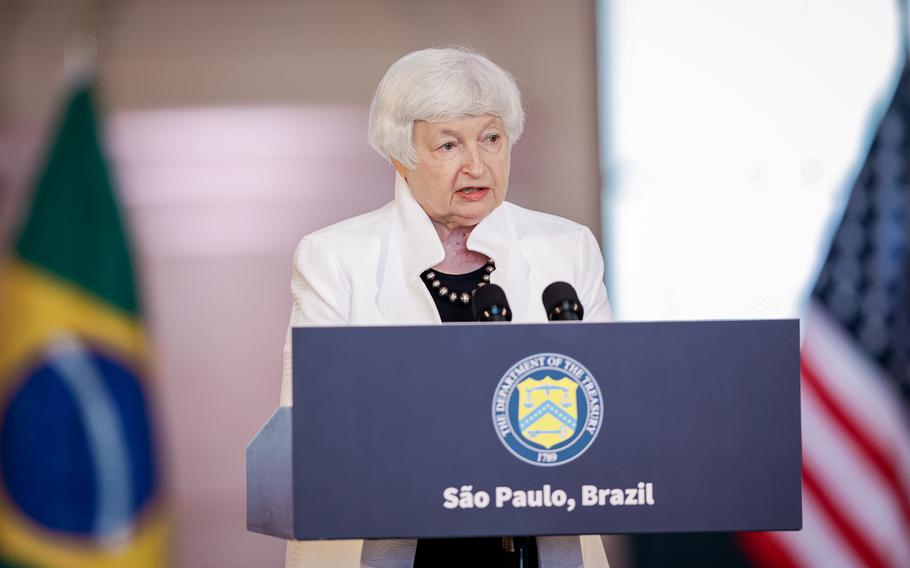Americas
Yellen heads to G-20 meetings with eye on China
Bloomberg July 22, 2024

Treasury Secretary Janet Yellen will join finance ministers from Group of 20 nations in Rio de Janeiro this week. (Tuane Fernandes/Bloomberg)
Treasury Secretary Janet Yellen will join finance ministers from Group of 20 nations in Rio de Janeiro this week for a series of meetings addressing urgent global issues, but the talks are likely to be overshadowed by U.S. politics.
With former U.S. President Donald Trump’s bid to recapture the White House gathering momentum, many global officials will have to grapple with the possibility that Washington will soon place much less emphasis on engaging with multilateral bodies like the G-20.
The Treasury’s top international deputy appeared to allude to the issue in remarks to reporters on Friday.
“Under President Biden and Secretary Yellen’s leadership, the United States has renewed our commitment to engaging with the world, not turning our back on it,” Undersecretary for International Affairs Jay Shambaugh said.
In Brazil, Shambaugh said Yellen will also restate the Biden administration’s commitment to aiding Ukraine in its fight against Russia — another area where U.S. policy could drastically change should Trump win in November.
One policy area likely to see continuity: Washington’s tough stance on China.
During this week’s meetings, Yellen is expected to continue airing Washington’s objections over China’s reliance on exports and mass subsidies for its manufacturing. Yellen has repeatedly warned that China’s overcapacity threatens to flood global markets with artificially cheap goods, killing off industries in the U.S. and around the world.
In May, Biden increased tariffs on a range of Chinese-made products, and Yellen has been at the forefront of urging U.S. allies also to act on the issue. In Rio, she may encourage emerging market countries to voice their concerns over Chinese exports.
Answering questions from reporters, a senior Treasury official highlighted that some emerging markets, including Brazil and India, had already revealed their displeasure by taking actions to protect their industries from Chinese exports. The official expected the topic would come up during ministerial meetings this week, but declined to say whether public criticism of Beijing could be expected.
Most emerging market countries have typically avoided attacking Beijing on the issue to avoid diplomatic backlash. By contrast, the U.S. and its top industrialized counterparts have become increasingly aggressive in their language on China. That was on display in a Group of Seven communique in May.
If the Brazilians or Indians did speak up more forcefully, that would mark a big win for the U.S., according to Josh Lipsky, director of the Washington-based Atlantic Council’s GeoEconomics Center.
“I see the U.S. trying to take that argument to the Brazilians and to the Indians,” Lipsky said. “The question is, can they get the large emerging market countries to say something publicly.”
Yellen’s schedule includes a press conference at 8 a.m. New York time on July 25. The group meetings are also expected to address the stalled implementation of a global tax deal struck three years ago, debt relief for low-income countries and multilateral development bank reform.
On July 27, Yellen will attend a gathering hosted by the Inter-American Development Bank in the northern Brazilian city of Belem. She’s set to deliver a speech on the Biden administration’s policies on climate change.
©2024 Bloomberg L.P.